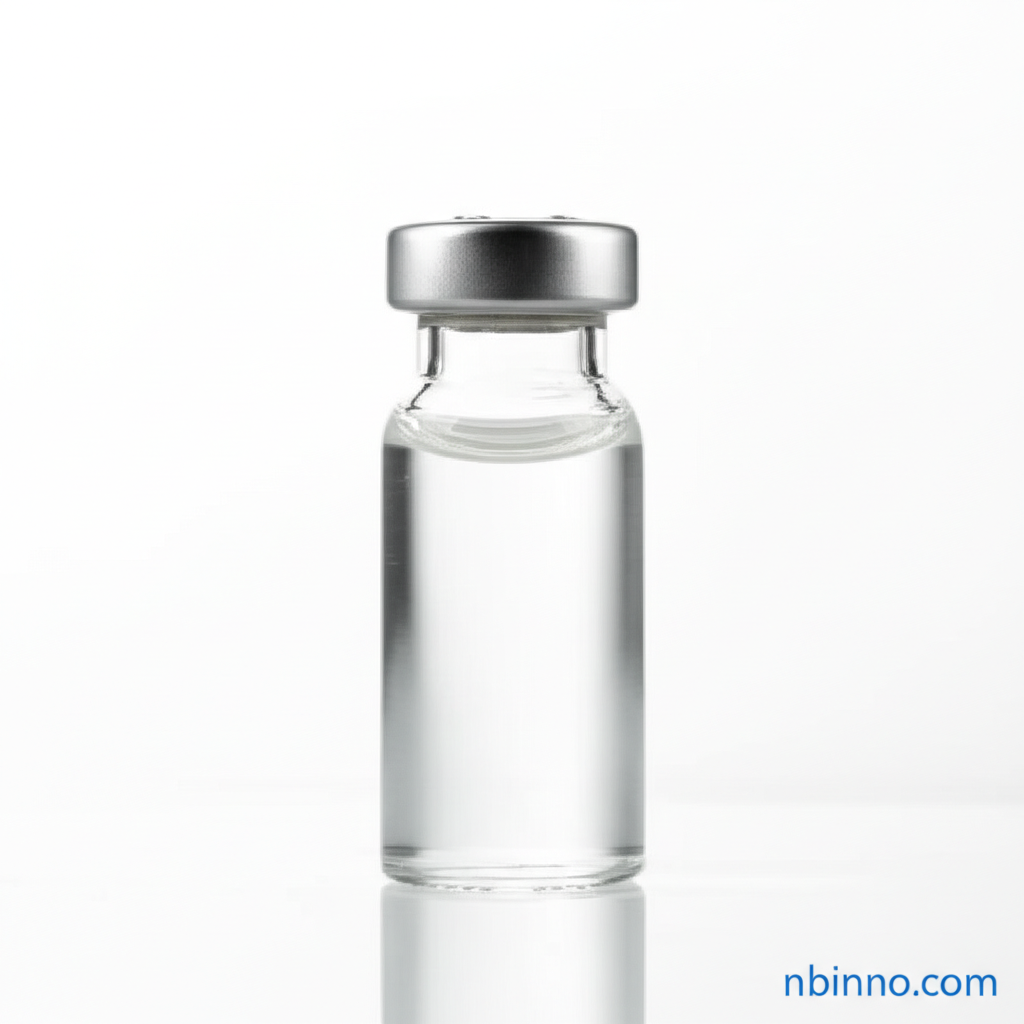Ethyl Trifluoromethanesulfonate: A Powerful Alkylating Reagent for Organic Synthesis and Medicinal Chemistry
Discover the versatile applications of Ethyl Trifluoromethanesulfonate (CAS 425-75-2), a high-performance chemical compound driving innovation in organic synthesis and pharmaceutical development. Explore its role as a key reagent.
Get a Quote & SampleProduct Core Value

Ethyl Trifluoromethanesulfonate
As a trusted supplier in China, we offer Ethyl Trifluoromethanesulfonate, a highly effective ethylating agent due to the strong electron-withdrawing properties of its trifluoromethanesulfonyl group. This makes it significantly more reactive than conventional alkylation reagents, facilitating complex organic transformations. It's an indispensable tool for chemists seeking efficiency and yield in their synthetic processes. We are a dedicated manufacturer in China, committed to delivering high-purity chemicals.
- Introduction to Ethyl Trifluoromethanesulfonate: This compound, known as ethyl triflate, is essential for precise chemical synthesis, offering superior reactivity for various ethylation tasks.
- Chemical Properties and Synthesis: With a boiling point of 115°C and a density of 1.374 g/mL, its reactivity is enhanced by the trifluoromethanesulfonyl group, making it a preferred choice in many synthetic routes.
- Applications in Organic Synthesis: It serves as a powerful reagent in nucleophilic substitution reactions, reacting efficiently with alcohols and amines to form critical organic molecules.
- Biological Activity and Medicinal Chemistry: Investigations have shown its potential in medicinal chemistry, including in vitro studies for inhibiting HIV-1 replication, highlighting its broader impact beyond chemical synthesis.
Key Advantages Offered
Enhanced Reactivity
Leverage the superior reactivity of Ethyl Trifluoromethanesulfonate for faster and more efficient ethylation reactions compared to traditional reagents.
Versatile Synthetic Tool
Utilize this compound as a key component in organic synthesis for creating complex molecules, including pharmaceutical intermediates and specialty chemicals.
Potential in Medicinal Chemistry
Explore its promising biological activities, such as potential antiviral effects, opening avenues for novel therapeutic development and research.
Key Applications
Pharmaceutical Intermediates
As a key ethylating agent, it is vital for synthesizing a wide range of pharmaceutical intermediates, enabling the creation of advanced drug compounds.
Fine Chemical Synthesis
Its high reactivity makes it indispensable for the efficient preparation of various fine chemicals, including sulfonic esters and fluorinated compounds.
Catalyst Systems
It can be incorporated into catalyst systems, particularly in polymerization reactions, contributing to the production of specialized synthetic resins.
Organic Synthesis Reagents
Widely employed as a powerful ethylating agent in nucleophilic substitution reactions, crucial for introducing ethyl groups into diverse organic molecules.
